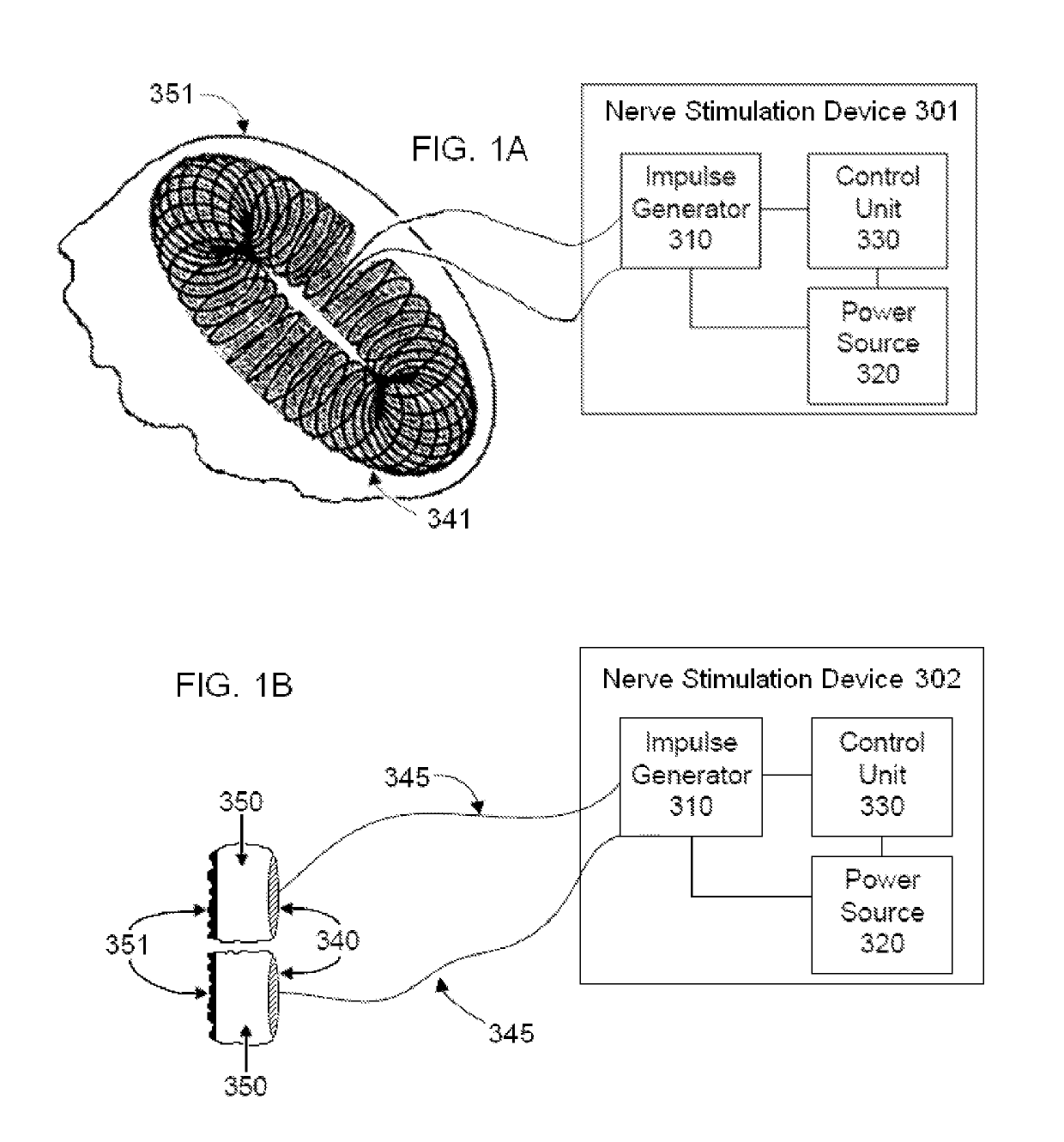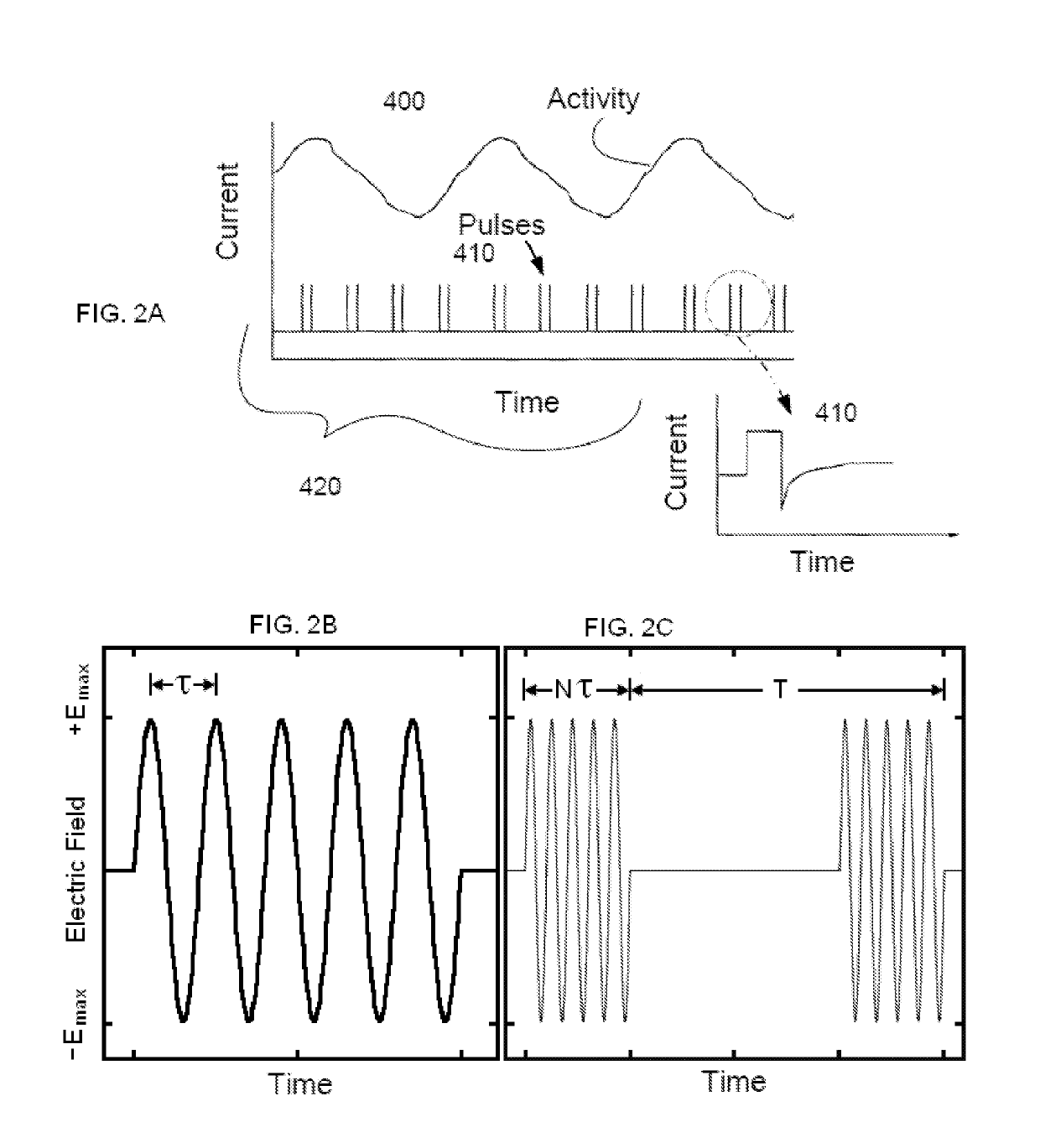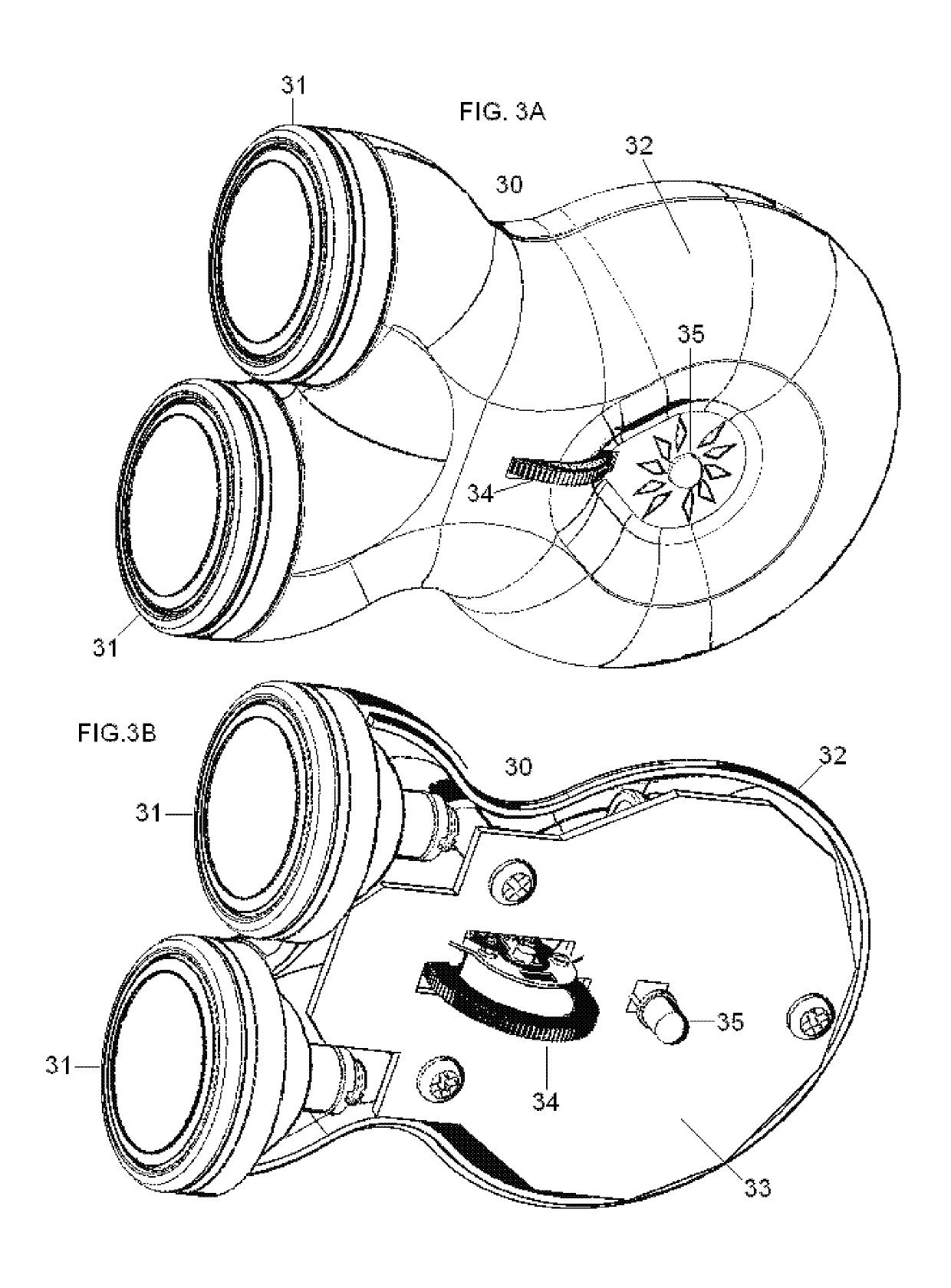Nerve stimulation methods for averting imminent onset or episode of a disease
a nerve and energy impulse technology, applied in the field of energy impulse delivery, can solve the problems of unintentional nerve stimulation, inability or practicality to non-invasively stimulate the nerve, and complex electrical circuits of magnetic stimulators
- Summary
- Abstract
- Description
- Claims
- Application Information
AI Technical Summary
Benefits of technology
Problems solved by technology
Method used
Image
Examples
Embodiment Construction
[0057]In the present invention, energy is transmitted non-invasively to a patient using novel electrode-based and / or magnetic stimulation devices that are designed to meet a long-felt but unsolved need to stimulate nerves electrically, totally non-invasively, selectively, and essentially without producing pain.
[0058]The invention is particularly useful for producing applied electrical impulses that interact with the signals of one or more nerves to achieve a therapeutic result. In particular, the present disclosure describes devices and methods to stimulate a vagus nerve non-invasively at a location in the neck, in order to avert an imminent medical attack.
[0059]Transcutaneous electrical stimulation with electrodes, as well as with magnetic stimulators, can be unpleasant or painful, in the experience of patients that undergo such procedures. The quality of sensation caused by stimulation depends strongly on current and frequency, such that currents barely greater than the perception...
PUM
 Login to View More
Login to View More Abstract
Description
Claims
Application Information
 Login to View More
Login to View More - R&D
- Intellectual Property
- Life Sciences
- Materials
- Tech Scout
- Unparalleled Data Quality
- Higher Quality Content
- 60% Fewer Hallucinations
Browse by: Latest US Patents, China's latest patents, Technical Efficacy Thesaurus, Application Domain, Technology Topic, Popular Technical Reports.
© 2025 PatSnap. All rights reserved.Legal|Privacy policy|Modern Slavery Act Transparency Statement|Sitemap|About US| Contact US: help@patsnap.com



